
by Mark Garro | Thrifty Tips, Thrifty Home & Family
If you’re like me, your grandparents had at least one chest or deep freezer or a spare fridge/freezer combo in their basement. My grandparents had both – a 30 year old fridge/freezer and a newer chest freezer and they were both stocked ALL the time. I believe it’s a byproduct of growing up in the Depression and not knowing if you’d have food at a later date, but in any case it was good economy to keep these simple appliances on hand.
(more…)

by Mark Garro | Thrifty Tips, Better You, Save Time, Thrifty Home & Family
Creating a healthy meal plan on a budget can be tricky. We so often have the best of intentions: we develop a meal plan(ish), buy our groceries, fist pump when we’re $16 under budget, and then suddenly your two year old is screaming, the baby has a rash, and making that Pinterest-worthy quiche for dinner is the last thing on your mind because McDonalds here we come!!
(more…)
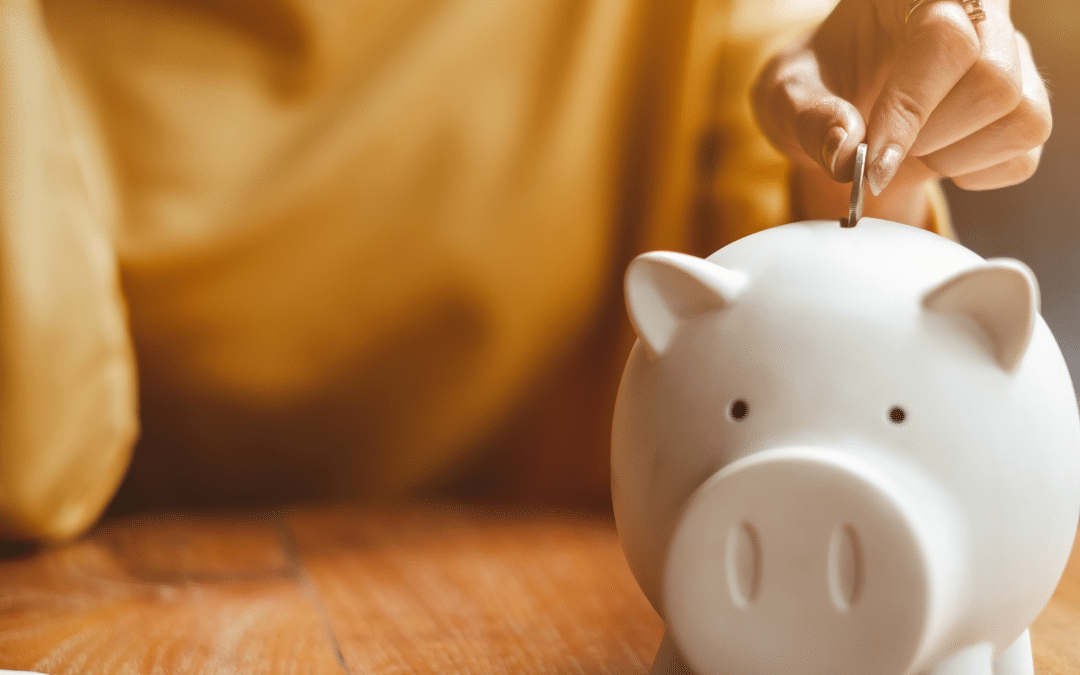
by Mark Garro | Thrifty Tips
Stuff steals your joy and suffocates your life. Do you believe this? I do. I’m on a mission to become weird.
Dave Ramsey says, “Don’t be broke. Be Weird”.
He suggests to look at what everyone else is doing and run the other way. The Joneses want stuff: cars, houses, furnishings, clothes, and the bills that pay for the stuff put a noose around their neck that one hiccup in life–an accident, a car repair, a broken appliance–leaves them “stuffocated”.
Nerdwallet says the average household is $135,924 in debt.
Bloomberg says $16,000 of that is credit card debt.
No. More. Stuff.
More than a year ago my family of four took a vacation and all of our needs fit into two backpacks. If we had taken more stuff we have checked bags and missed flight connections. We each had three or four sets of clothes and washed them in the sink and hung them to dry. We were minimalists and it was an experience that left us thirsting for more–I mean less–stuff.
Over the last eight weeks we have sold so much stuff. At the same time we put our house on the market to sell. Last week we closed on the sale. No one would have said our home was cluttered. Judgments say we lived simply. We didn’t pour additional concrete for the driveway or build a shop, or fill the house with furnishings. Simply to others felt “stuffocated” to us. We leased a 997 square foot 2-bedroom apartment for four people. The girls share a bedroom and we have a dog. No amount of downsizing prepared us for the transition. No matter how small our material goods are there was still too much stuff. We still have a few boxes of stuff to take to Goodwill, and we are 100% debt free. We are FREE! Here’s what we’ve learned.
Less stuff means more life.
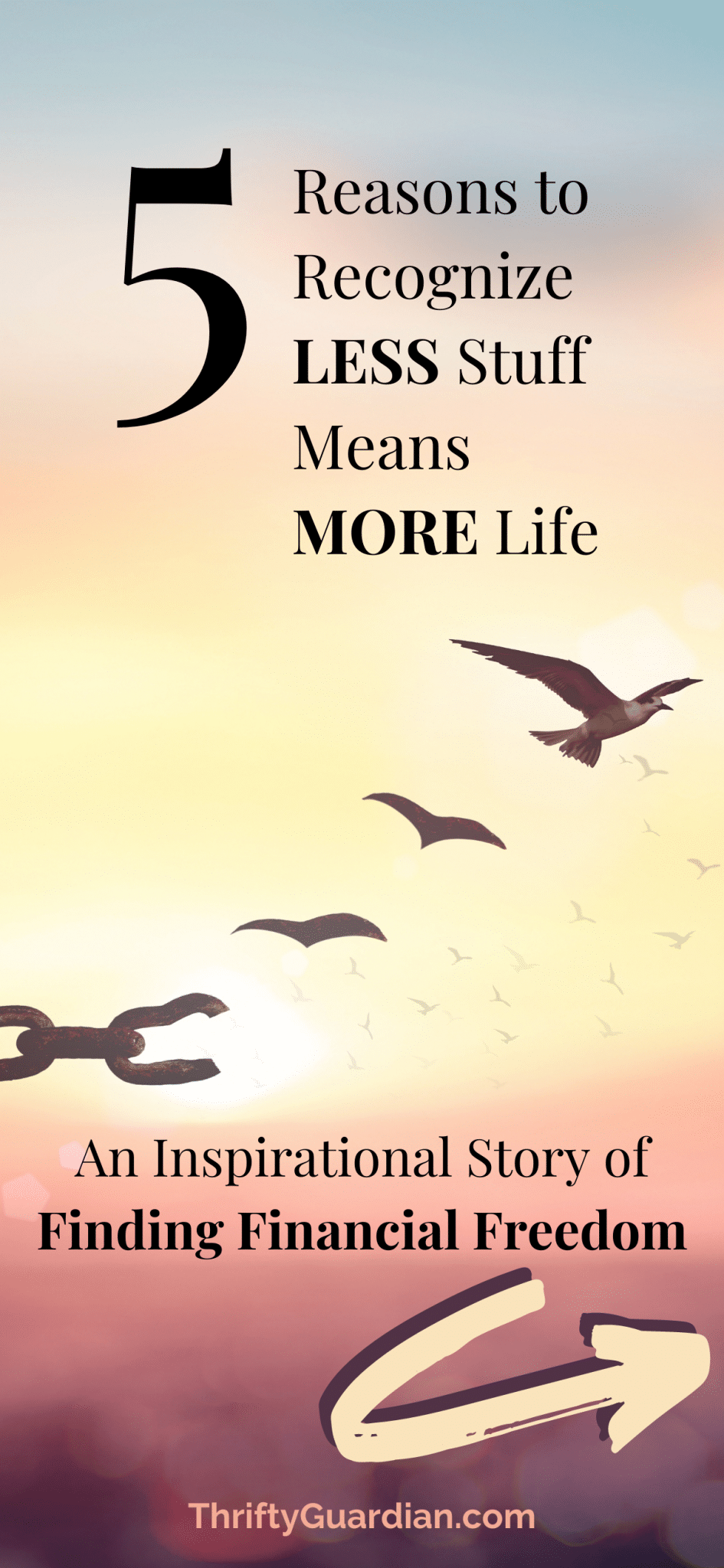
Travel:
Remember that backpacking trip? We can have great experiences like those more often. We can move quickly with less stuff, even be more spontaneous. There’s no house, yard, or anything else to maintain. We can go whenever we want, where ever we want to be. That thought alone leads to a lot less stress. Stuff doesn’t hold us back.
If your income comes from online sources the world becomes your playground. House sit for people around the world and your lodging and utilities are covered. Go have experiences stuff will never let you have.
Declutter:
My mom is a pack-rat. She still has my grade school worksheets. I recently convinced her to shut down a storage unit where she was storing stuff because it has cost her more than $5,000, for stuff that fit in her garage. My husband’s mom is a pack-rat. She doesn’t understand why we want less stuff when stuff can be handed down, passed around, or is generally useful. My Dad wants to know when I am coming to pick up my late Grandma’s china. It’s beautiful and I don’t have room for it. Dad chuckles when we talk about our next move. We get the, “Oh you kids…”. We’re in our 40’s, hardly kids, and this feels better all the time.
Be charitable:
Shopping is fun, and what if having extra money leads to helping causes you care about. Start a foundation to touch people and needs with care. Do the work only you are meant to do.
Be Creative
I am not saying you don’t need to buy things. Plenty of people need a house. I think people need a place to live that doesn’t own them. For my family a house is a liability, not an asset. We move often. I wouldn’t call us nomads, but history says we move every 4-5 years. If that means selling a house in a downturned financial cycle then we have a lot to lose. Luckily, we sold our house while the market was high. Now we get to plan next steps. If you enjoy living in a house as part of the American Dream, that’s great. Hopefully the house fits your income. Dave Ramsey suggests no more than 40% of your income be tied to a house on a 15-year term, fixed rate mortgage.
You don’t have to furnish it with big box high priced things. Shop second hand if possible. You don’t have to furnish it with big box high priced things. Shop second hand if possible. Find Furniture sales in your area. Visit a garage sale. A little elbow grease and paint can make furniture or decor something you love with a great story. Tell your story.
Open your mind and be free
On Dave Ramsey’s program he allows people a debt free celebratory scream. “FREEDOM”! It’s based on William Wallace from the movie Braveheart:
Don’t you want freedom from stuff, debt, and clutter?

Nicole, owner of WeTalkHealthy, lives a healthy decluttered lifestyle. Her main focus is as a health advocate and mom of 2 who studies food, and general wellness. It’s her mission to help you live a healthier life by learning about the dangers in the food you feed your family. Whether it’s meal prep or creative exercise without setting foot in the gym, you don’t want to miss her tips.
Save
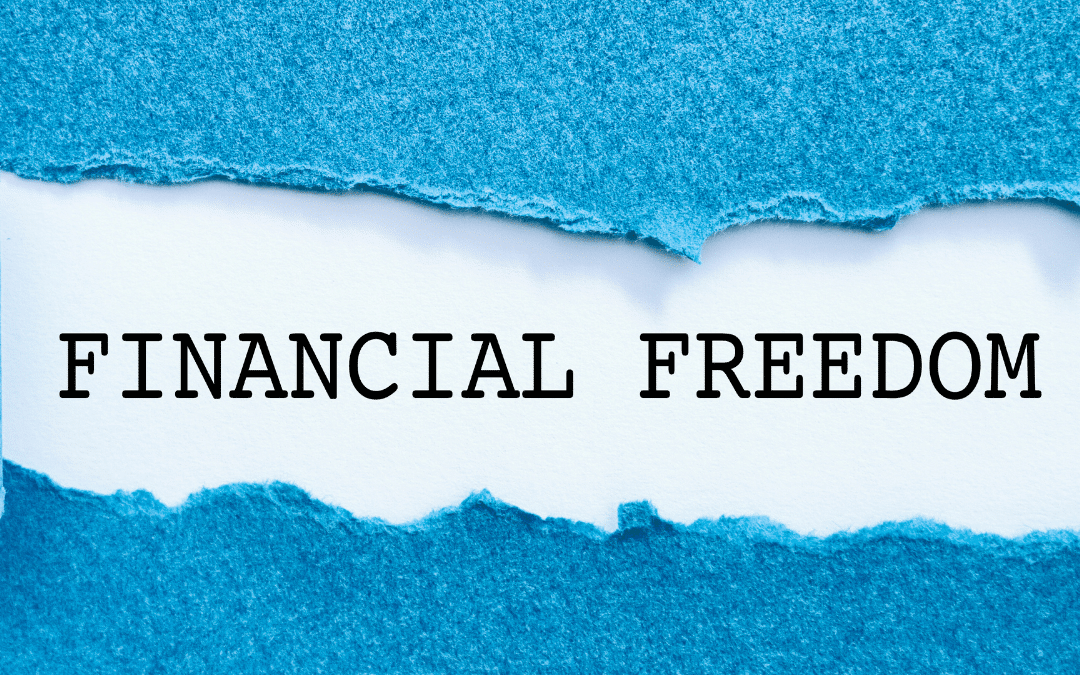
by Mark Garro | Inspirational, Thrifty Tips
Financial freedom sounds like a dream, doesn’t it? The thought of never again having to set up autopayments or worry about what bill is due when…Ahhh-mazing.
That said, have you ever thought about the benefits of financial freedom BEYOND just freedom with your finances?
Well today we’ve got Jacob from Dollar Diligence to introduce us to the non-financial benefits of financial freedom —
The Non-Financial Benefits of Financial Freedom
Being $25,000 in student debt, I knew I was feeling the strain and the anxiety. I hadn’t experienced a good night’s sleep in months and felt drained of energy on most days. I wasn’t completely hopeless, but I felt constrained by the enormity of the problem.
The damage my debt was doing to my finances and credit was clear, because I monitored it almost daily. But, what wasn’t so clear was the damage it was doing to me and those around me. The stress, coupled with my inability to concentrate on much of anything else, led to a deterioration of my health, my relationships and my career.
Getting free of debt not only gave me my financial freedom, it saved my career, and it probably saved my life.
Everything began to turn around for me when I got serious and developed a plan. I freelanced for extra income, I refinanced to a lower rate, and I setup auto-pay for weekly debt killing payments. Just having a plan gave me a sense of relief and the ability to focus, prioritize and make decisions. After 15 months, I am debt free.
Financially I’m not yet where I want to be, but I now have a clear path to achieving my most important goals. It’s a feeling like no other. While the financial benefits of becoming debt-free are clear, less clear, but much more important, are the non-financial benefits. When you understand how debt impacts every corner of your life, it becomes your most powerful motivation to eliminate it completely.
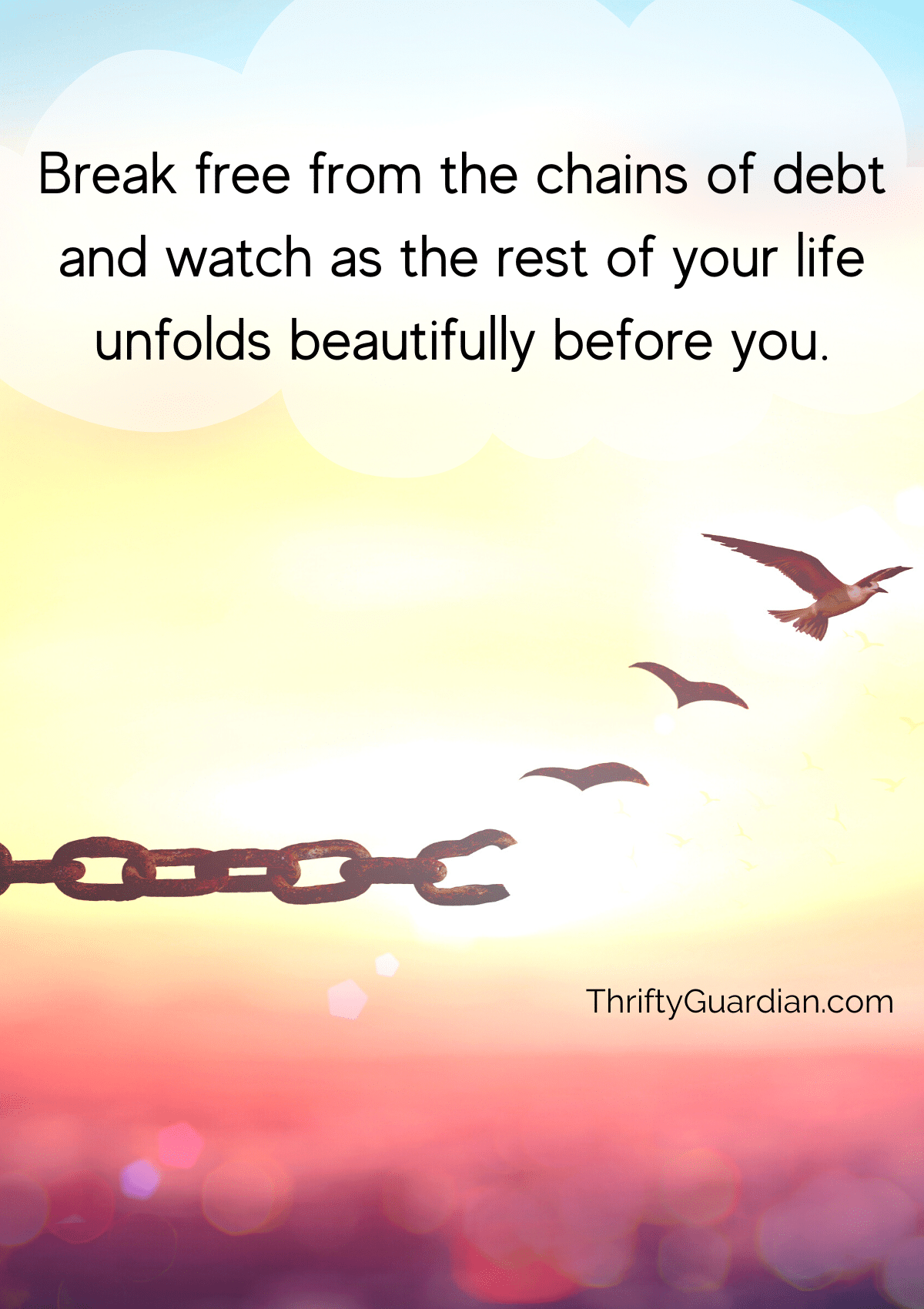
The Physical Reality of Debt
You feel it first in your emotional makeup. It’s hard to ignore the feelings of stress, anxiety and depression, but you feel as if you can cope with it. What you don’t realize is the physical toll it takes. Studies show that stress is a leading cause of heart disease and researchers have found a positive correlation between debt-induced stress and heart attacks.
When I was at the peak of my distress, my family forced me to get a physical. I found out I was a hypertensive time bomb that needed immediate disarming. I long ignored the migraines, the weight gain and the new age lines – all stress-induced. When I got rid of my debt, I got my health back.
Debt Can Hollow Out Your Life
While your mental and physical health deteriorate under the weight of debt, everything else that is important in your life seems to fade into the background – your family, your relationships, your career and your future.
When you can’t concentrate on anything other than your finances, nothing is prioritized. It doesn’t happen deliberately; it just happens.
You grow distant from the people close to you and there is no urgency in your relationships at home or at work. Some people become resentful of others – their spouse for not understanding or being able to help, their employer for not paying enough and anyone who is enjoying a debt-free life.
Debt threatened my relationships, my career and my future. When I became debt-free, I got my life back.
Finding the True Meaning of Wealth
At the risk of drawing any comparisons between eliminating debt and surviving some real life and death situation, I did gain a similar sense of appreciation of everything around me.
There are so many moments of wealth that occur in our lives that, when we’re lost in a fog of despair, we miss entirely. Wealth is as much about accumulating these moments of love and happiness as it is accumulating vast sums of money.
It’s also about being able to choose how you want to live your life – free to pursue your passion with peace-of-mind and no encumbrances. All of that is lost when you can’t see past a stack of bills. When I became debt-free, I became a very wealthy man.
It may seem hopeless at times, but there are great rewards awaiting you for taking a stand against your debt, the least of which is your financial freedom. When you understand how much is taken from you when debt controls your life, there is no greater feeling than making that last payment.

by Mark Garro | Thrifty Tips
We all have a money back-story. You might not realize it, but what you thought about money as a child, is still affecting how you deal with money today and all of your tomorrows. Because choosing to save your money rather than spend it is very different than not feeling like you have enough to spend.
Change Your Money Story in 3 Easy Steps
Did you hear any of these statements growing up? —
- Money doesn’t grow on trees
- We can’t afford that
- Money can’t buy happiness
- They were born with a silver spoon in their mouth
- I’m not made of money
- We don’t have money to burn
A LOT of parents have said numerous versions of this to their children (and themselves) and have no idea how much it affects their relationship with money for the rest of their lives. Allow me to translate each statement to how your subconscious most likely hears it:
• Money doesn’t grow on trees (AKA – There is not enough money to go around, and it will all run out someday)
• We can’t afford that (We are broke and not able to purchase whatever it is you’re wanting or needing)
• Money can’t buy happiness (While true to a degree, this can be misinterpreted to mean – If you HAVE money, you can’t be happy)
• They were born with a silver spoon in their mouth (They are rich only because were born that way- and deeper read – Since we were NOT born rich, we can never be rich)
• I’m not made of money (More “I can’t afford it” mentality)
• We don’t have money to burn (We don’t deserve to spend money on our “wants,” rather only on our “needs”)
It’s easy to grow up thinking you can’t afford a small luxury like matching dishes or feeling like you can’t donate money to a local charity you love.
Here’s the good news – you can change your money story!
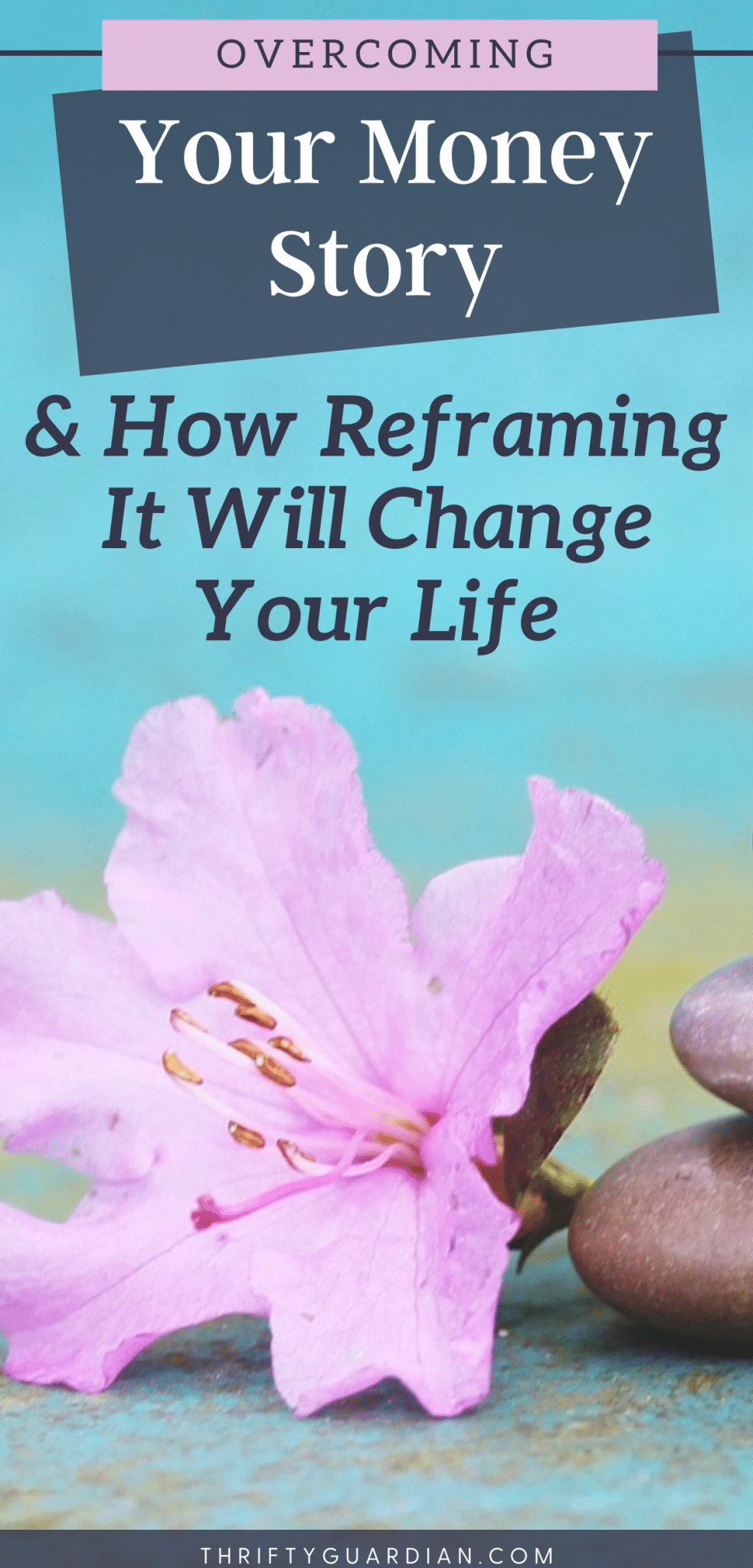
Step 1- Go back in time
Think back to when you were a child and recall what you heard about money as you grew up, from your parents, other adults, and even other kids.
Identify Your Money Story
Think about what you heard about money and how that affected your current feelings to do with money. For example, I remember hearing “We’re not lucky when it comes to money” and “I’m not made of money.” I grew up thinking I was destined to be “not rich” and more importantly, that I didn’t deserve to have money. I took it a step further all by myself and realized I felt having money meant you weren’t a hard worker and I was almost embarrassed by anything that might be construed as “rich” or “fancy.”
Step 3 – Flip It And Reverse It
Take what you know now, your back-story, and flip it around (or reverse it- or both!) I took my shame of anything looking “rich,” and I owned it. I changed the meaning.
I always wanted someone to clean my house, but I had convinced myself I “couldn’t afford it” and admittedly it disgusted me to think of myself as “one of those people” (AKA- frivolous and lazy). And so, I changed the definition of what someone who gets house cleaning means.
The NEW definition of house cleaning recipient-> Someone who values their time and chooses to spend money to have help cleaning their home so they can have more time with family or whatever else they choose.
 Shauna Sanders is a life coach for busy professionals who feel like something is missing from their lives. Together you’ll zero in on the reasons why and make a powerful plan of action so you can finally create and sustain the fulfilling life you want. Connect with her on Facebook or visit her website ShaunaSanders.com!
Shauna Sanders is a life coach for busy professionals who feel like something is missing from their lives. Together you’ll zero in on the reasons why and make a powerful plan of action so you can finally create and sustain the fulfilling life you want. Connect with her on Facebook or visit her website ShaunaSanders.com!
Save










 Shauna Sanders is a life coach for busy professionals who feel like something is missing from their lives. Together you’ll zero in on the reasons why and make a powerful plan of action so you can finally create and sustain the fulfilling life you want. Connect with her on
Shauna Sanders is a life coach for busy professionals who feel like something is missing from their lives. Together you’ll zero in on the reasons why and make a powerful plan of action so you can finally create and sustain the fulfilling life you want. Connect with her on